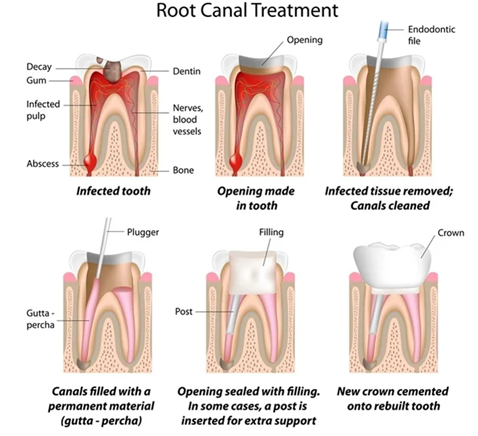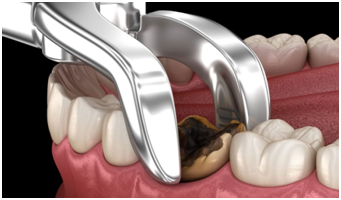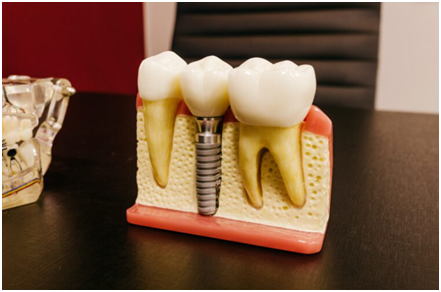There are a lot of misconceptions about root canals and extractions. Both dental care methods have a bad reputation as a result of the myths. Whenever it comes to defending your oral health, limiting the spread of microorganisms, including preventing future dental difficulties, each therapy is appropriate for specific scenarios.
Here, we’ll compare root canals with tooth extractions, as well as when each is appropriate and which is healthier for your mouth.
What is Root Canal Treatment
This root canal seems to be a common dental surgery that helps to keep your mouth healthy. It provides a lot of advantages, including preserving natural teeth and removing harmful microorganisms from the mouth.
Root Canal Procedure
Well, the root canal is indeed an endodontic treatment that involves extracting the affected tooth’s damaged pulp, nerves, plus connective tissue. Your dentist will use specific equipment to penetrate the tooth as well as remove germs from the affected root canal even during the procedure. To keep bacteria out, every tooth’s roots are cleansed and sterilized before getting filled with gutta-percha. To preserve the teeth from future harm, a dental cap is generally placed on top of it.

What Is the Average Time for a Root Canal?
So, ensure that all of the diseased tissue gets removed when sealing the teeth, the dentist must be highly accurate during root canal therapy. Based on the kind of teeth that is damaged, it might range from basic to complex. It does have an impact on the procedure’s duration.
What Is the Cost of a Root Canal?
The overall cost of such a root canal is affected by several tooth factors, including:
- Species of tooth
- This mouth’s location
- Both severity of the damages or the case’s intricacy
- Insurance protection
Several dental insurance policies pay for a part of root canal treatments. When you require a root canal, visit your insurance provider to learn more about the coverage or inquire about in-house savings options to help you pay for the procedure.
Removal of teeth
This tooth extraction, apart from a roots canal, which preserves a piece of your original tooth, includes the entire removal of the tooth (crown plus root).
When Do You Need a Teeth Extraction?
Whereas a dentist’s ultimate objective is to save the original tooth, tooth extraction can sometimes be essential. The following are some of the reasons behind tooth extraction:
- Inside a crowded mouth, providing space
- Getting ready for orthodontia
- Getting rid of infectious stuff in the mouth
- Taking steps to reduce the danger of infection
- Prevention complications in the future, including such impacted wisdom tooth

What Happens During a Dental Extraction?
Any primary and permanent teeth which have already emerged, as well as a tooth that is still underneath the gum line, must be extracted.
Usually, simple extraction entails the removal of a tooth that is visible. Your dentist numbs the region before wriggling the tooth out from the socket with special forceps.
This tooth still has not erupted and may have fallen off towards the gum line, necessitating surgical extraction. Sometimes in circumstances, the procedure is more involved and entails making an opening in the gums and removing the teeth.
“Teeth Extraction” versus “Root Canal“
As you’ve seen, there are situations that whenever a root canal or tooth removal may be required, as well as the best treatment to take. Thus, which is the best option?

Is just a Root Canal Safer Than a Tooth Extraction?
The ultimate objective is to save your natural teeth. The dentist would try to just save the tooth wherever possible. That jaw bone will stay healthy and also the neighboring teeth will keep it in place if you preserve the root in position and use the restoration to strengthen its damaged tooth structure. These help to avoid future issues including tooth shifting, decreased bone, and gum diseases.
Root canals clean your mouth of microorganisms and also have a high chance of success in preserving your tooth.
Dental implantation
Removing teeth leave gaps that are more than just ugly. Missing teeth can result in a variety of issues, including tooth shifting, gum disease, even bone resorption.It is critical to replace the teeth to avoid further dental issues. We’ll go over the benefits, costs, and objectives of dental implantation as a lifelong teeth replacement in this article.

Dental implantation is used to replace lost teeth.
Implants can replace a single tooth, numerous teeth, or a complete arch of teeth.
What else are dental implants and how do they work?
This dental implantation is a device that replaces your teeth’ roots in the jawbones. This is a secure platform for attaching a dental repair including a crown, dental bridges, or denture after it has healed.
Personalized dental implants are used to replace missing teeth. Crowns are placed on top of them to mimic the architecture of real teeth. Four to seven implants are implanted then topped with such dentures to restore a full arch of teeth.
When it comes to tooth implants, exactly how long do they last?
Teeth implants are a lasting tooth replacement solution that can span a lifetime. The implant can last a lifetime with adequate maintenance, such as appropriate oral hygiene with frequent dental examinations. They have just a high rate of success that is not vulnerable to deterioration.
Although the implant alone is likely to last a lifetime, the crown that is linked to it may deteriorate over time. Around 15-20 years, the crown might need to be changed.
Advantages and Disadvantages of Dental Implants?
Every dental implant offers various advantages over alternative restorations whenever it comes to tooth replacement. The following are some of the advantages of implants:
Safe
Titanium and zirconium implantation are available. These are both safe for patients to use and successfully implement with the gums.
Durable
This implant gives better durability and safety than some other restorations even though it is implanted in the jaw. These are not detachable and therefore do not move in the mouth like ordinary dentures. This means that patients could eat whatever they want without fear of being ill. Implants are strong enough to withstand the biting power of natural teeth.
Permanent
Implants are intended to be a one-time treatment. These are the permanent substitute choice because they are extremely successful yet simple to care for.
Cost-effective
Even though implantation will be more expensive at first, its lengthy lifespan means it will not require to be removed and repaired. Other repairs are insecure, easily damaged, and must be replaced. That implies you’ll have to pay for more dental work in the future.
Conclusion
Although it is easier to delay a tooth replacement, it is generally better to save a tooth or replace missing teeth.

